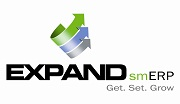Business automation has become inevitable for any organisation that has a foresight and vision to look ahead. The future is technology. Automation is the only respite for achieving desired goals within the timeline for any successful organisation. Export industry is a notch ahead of any other industry. Dealing with overseas clients with different languages and cultures, rules and regulations, currency and conversions etc involves a lot of brain racking work. Export documentation is the most difficult task to sort so that no legalities are missed which can end up the company owner behind bars. A best fit ERP cloud software solves most of these challenges faced by an export company. Every export order taking place in the company goes through defined steps of documentation like invoice, packing list, bill of exchange, shipping bill etc. Whether you are in an exporting business or someone who uses exporting services, you know that there can be a lot of paperwork involved. There is a lot of paperwork that can often seem endless and repetitive.Instead of performing the same tasks, it should be a simple set of few button clicks automating Export documentation to complete.
As an Export house your organisation depends on effective export control processes throughout the supply chain. The legal ramifications of violating export laws can be a huge challenge, we all are aware of that. Freight forwarder, customs broker, sea vessels crew, warehouse management all these can be simply managed by single export business software. To supply the highly competitive order shipments, freight exceeds in volumes of sales and profits, you need an ERP. Still wondering how?
3 Reasons why Exporters need a best fit ERP software
1. Financial reporting accuracy – all invoicing and purchase orders can be consolidated and kept track of through erp.
2. Enhances speed and agility – ability to respond faster to customer needs and deliver service promptly.
3. Details of shipment – an ERP scheduling application is crucial for optimising work hours and properly utilising resources. This will allow tracking of order details anytime, anywhere.
Every export company should own 2 things:
- An export compliance program.
- Export documentation software that standardises the export paperwork.
Both the above credentials can be
Why should you implement ERP software?
The best reasons to prove the competence of an ERP software specially customised for your export business are:
- Timely export order entries into the system allows companies to plan out their production or procurement activities well in advance.
- Single system software for all departments in the export house – documentation, post shipment and financial accounting. Companies do not have to manage separate spreadsheets for various activities
- Flexibility to validate accounting entries with exchange rate present in the Shipping Bill have ensured company accountants to book the exact value of export sales.No money is wasted in exchange of currencies.
- Auto-computation of fluctuation due to difference in exchange rate’, has reduced significant amounts of time spent on manually calculating the exchange rate and entering it into the system.
- Tracking of the various export incentives with their values has also become easier since they are being entered as additional information in the shipping bills section.
- Packing credit availed and it’s utilisation along with balances and interest has become easier to track as they are being tagged with the realisation or discounting of bills
- Shipment and post shipment statuses such as goods under dispatch, goods in transit come from the ERP itself since various dates such as B/L Date, LR Date, LEO Date are being entered by the customers.
- Remittance statuses such as documents being sent to the bank, pending negotiation and realization pending are available from the system itself.
- Various KPIs, BI and MIS available for the management so that they can take quick and effective decisions.
It is thereby proven that an ERP software improves company productivity, by removing the workload of employees due to complete manual processes in Exports and enable a consolidated digital way of working efficiently.
It is advisable to take a wise step now to reap the benefits in the future.
For further information or queries please feel free to call us at +91 9007026542 or leave a comment below and our experts will get back to you.







